On fear: McKibbin-Fernando pandemic modelling in Australian media
And the real pandemic of tyranny.
Welcome article for new readers: battlefield philosophy and my articles summarised
ExcessDeathsAU has been banned from social media: I rely on you to share articles
Dear Readers,
I recently went back to early 2020 and reviewed my notes with the question: how were they able to scare Australians so badly so early on? Were there any key media articles? What ‘ended the pandemic’ for me and when?
As I have said before, I did not begin where I am now. However, by April 2020, for me, the ‘covid pandemic’ was over. At that point, the real pandemic was one of tyranny and breathtakingly obvious lies and contradictions.
Yet, I recall the case of one elderly man who was so terrified of ‘covid’ that he spent the last months of his life locked in his home with towels stuffed under doors and around windows so that ‘covid would not find him.’ He refused to see anyone outside of (government-encouraged) ‘contactless food drop-offs’ and died alone.
I also personally know a woman who voluntarily trapped herself and her baby in their high-rise apartment because she was so terrified of ‘covid.’ Even using official government data from the time, corrupted as it is, I could not convince her that ‘covid’ was not dangerous for children and she railed against ‘lockdown breakers.’ She did not emerge from self-inflicted imprisonment until the ‘vaccine’ was available for her and her child. Even after jabbing, she continued to mask her small child outside in public.
I think about the generations who have been traumatised and terrorised by fear propaganda. Covid democide is the greatest crime in human history and the architects of this democide are counting on us to deflect and forget.
Here I present a key article that I believe was released in the Australian media early in 2020 to stoke fear. The fear was necessary for people to submit to the government who could ‘protect them’ and provide the ultimate ‘saviour:’ the ‘vaccine.’ At the same time, the government was capitalising on unprecedented power consolidation via interventions. For them, the fear was a win-win.
Australia used to be a safe, high-trust society and most people were totally blindsided by what happened early in 2020. Then, in our interconnected country and world, this ‘covid’ fear spread like wildfire, causing panic.
Of course, the covid fear was MUCH more than this one article/report (e.g., the constant ‘political pressers,’ ‘rolling death toll tallies,’ suspicious images of mobile mortuary freezers and stacked coffins around the world, nurses in spaceman PPE, cognitive warfare ‘bootcamp’). Yet, I find the McKibbin & Fernando modelling and associated article particularly interesting and suggest they should be more closely examined by those in this space (that is not me).
Many people say the antidote to this fear is to disengage with the source of the fear and they are correct. However, it is also important to understand what is happening around us because people will be acting aggressively and irrationally, and for that reason analysing propaganda and media messaging is important. Analysis is also an antidote.
Reader
recently described me as a “mystery scribe of excellence.” I may not always get it right, but I take my work as your memory keeper from Western Australia to the world very seriously. I will provide the receipts, and will clearly tell you where something is my opinion or to whom questions should be directed. I write this Substack to serve God in a state of repentance.Thank you to paid subscribers who keep articles free for readers in 79 countries, and to everyone who reads and shares articles.
Yours Faithfully,
ExcessDeathsAU
4 “And I say to you, My friends, do not be afraid of those who kill the body, and after that have no more that they can do. 5 But I will show you whom you should fear: Fear Him who, after He has killed, has power to cast into hell; yes, I say to you, fear Him!
6 “Are not five sparrows sold for two copper coins? And not one of them is forgotten before God. 7 But the very hairs of your head are all numbered. Do not fear therefore; you are of more value than many sparrows.
Luke 12: 4-7. NKJV. Full chapter.
Australian cognitive warfare landscape, early 2020 (and background reading)
1a. Watch the movements of the ultra-wealthy
1b. Watch for the absurd contradictions
1c. The real dangers of panicking crowds and tyrannical governments
March 4, 2020 article: McKibben & Fernando model mass death and economic collapse scenarios in Australia and globally if governments do not ‘tame the virus.’
Final thoughts
1. Australian cognitive warfare landscape, early 2020 (and background reading).
New readers please see below articles for background understanding. The first article describes how the Australian government began the covid cognitive warfare campaign with ‘love bombing’ (“we’re all in this together”) and quickly moved to cognitive destabilisation ‘bootcamp’ through mixed messaging, then threats. This article dovetails both the below articles:
The government-industry-media complex plants and releases information to wedge its way into people’s subconscious to get them to act and react. This is the foundation of advertising, politics, and entertainment. And, of course, cognitive warfare.
As we know, fear of ‘covid’ was the ultimate motivator for what happened during the ‘pandemic.’ They used the narrative that ‘the vaccine was the only way out of the fear, death and destruction caused by a virus.’
Problem, reaction, solution.
In order to navigate the cognitive warfare landscape, we can go to their plans which hide in plain sight.
NATO REVIEW. Countering cognitive warfare: awareness and resilience. Johns Hopkins University & Imperial College London. 20 May, 2021. (Archive).
In cognitive warfare, the human mind becomes the battlefield. The aim is to change not only what people think, but how they think and act. Waged successfully, it shapes and influences individual and group beliefs and behaviours to favour an aggressor’s tactical or strategic objectives. In its extreme form, it has the potential to fracture and fragment an entire society, so that it no longer has the collective will to resist an adversary’s intentions. An opponent could conceivably subdue a society without resorting to outright force or coercion.
A single campaign could focus on the limited aim of preventing a military manoeuver from taking place as planned, or to force the alteration of a specific public policy.
It seeks to sow doubt, to introduce conflicting narratives, to polarise opinion, to radicalise groups, and to motivate them to acts that can disrupt or fragment an otherwise cohesive society. And the widespread use of social media and smart device technologies in Alliance member countries may make them particularly vulnerable to this kind of attack.
Our cognitive abilities may also be weakened by social media and smart devices.
News feeds and search engines that serve results which align with our preferences increase confirmation bias, whereby we interpret new information to confirm our preconceived beliefs.
(This is literally what they did to us).
1a. Watch the movements of the ultra-wealthy
Again, a solution to this is to ignore the ‘pandemic’ which is what I did in April 2020 when I realised that Australia’s richest people were not scared of ‘covid’ at all. The ultra-rich carried on with their lives, travelling the world while we were all locked down.
To emphasise, when a crisis is unfolding, I would highly recommend tracking the actions and movements of the ultra-rich. If something really deadly was occurring, these extremely rich men and women would have been in their bunkers, on their islands or at sea in their self-sustaining yachts.
April 23, 2020:
Billionaire Kerry Stokes exempted from strict quarantine rules after arriving in Perth from Aspen by private jet. (Archive).
WA Police gave billionaire mining and media mogul Kerry Stokes and his wife an exemption from mandatory hotel quarantine rules on medical grounds after they returned to Perth from the United States on their private jet two weeks ago.
WA Premier Mark McGowan used tough rhetoric at the end of March stating there would be no exemptions "for all Australians" to strict hotel quarantine rules.
WA Police refused to reveal why WA Police Commissioner Chris Dawson granted Mr Stokes and his wife an exemption due to 'privacy reasons'
April 25, 2020:
Billionaire Kerry Stokes flies to Canberra for Anzac Day services after quarantine exemption. (Archive).
Billionaire Kerry Stokes and his wife Christine Simpson Stokes have made a surprise visit to Canberra to commemorate Anzac Day at the Australian War Memorial after the WA government granted them exemptions from hotel quarantine on medical grounds.
Mr and Mrs Stokes flew to Canberra on Friday and will travel on to Sydney despite Western Australia's strict "hard border" closures that mean they will not be able to return to the state without the government granting more exemptions to its travel rules.
Mr Stokes is the chairman of the Australian War Memorial Council.
On Friday Premier Mark McGowan told West Australians to stay home for the Anzac Day long weekend.
Just for fun, let’s see what Australia’s wealthiest man (Andrew Forrest) was planning in 2020. (Archive article).
November 2020:
At the AGM in November [Ed. - 2020], it was revealed Dr Forrest intended to visit 47 countries in a hunt for renewable energy projects for FMG’s renewable energy arm Fortescue Future Industries.
…based himself out of Croatia to avoid Australia’s strict border controls and quarantine requirements…
Again, if ‘covid’ were as deadly as they were telling us it was, these two wealthy Australian men would be in bunkers, not ‘avoiding covid measures’ that ‘keep us safe’ or planning to visit 47 countries.
Thank you Kerry Stokes, for ending the pandemic.
1b. Watch for the absurd contradictions
The illusion of ‘covid as a deadly disease’ should have ended for everyone around the world in early June 2020 with the George Floyd/BLM riots and protests. Suddenly, the same ‘health experts’ that told us to lockdown and isolate were encouraging people to go out and protest because racism was a ‘health emergency.’
BLM protests were ‘essential gatherings’ but at the same time the ‘covid virus’ was the ‘deadliest pandemic ever.’ The virus was “killing black Americans with horrifying precision” but also: ‘everyone go out and protest for black lives.’ The cognitive dissonance in the mainstream narrative was mind-boggling and absurd. Again, ‘covid’ should have been over at this point but people were just parroting conflicting talking points.
It was nuts.
Article: Suddenly, public health officials say social justice matters more than social distance. Politico. 4 June, 2020. (Archive).
Yet, people persisted with these absurdities, holding not just two but multiple conflicting ideas at once. This was predicted (see Day tapes transcript on Wayback):
1c. The real dangers of panicking crowds and tyrannical governments.
Early in 2020 Australians became so terrified for their lives that for many, their first instinct was to assault each other. When people believe their lives are in danger and the government is signalling that it is losing control of the situation, even a ‘high-trust society’ will quickly descend into violent chaos.
Scenes like this were common all around Australia:
Please click here to watch video: Australian man charged over supermarket 'assault.’ BBC News. 16 March, 2020.
Again, the government-media complex plants and releases information to get people to react, and the government then monitors the response. I believe ‘they’ were watching and studying these events carefully.
After all, the behaviour of Australians was specifically studied by the government regarding attitudes towards the covid vaccine and how people could be manipulated into taking it:
FOI 2398 (5 in the series) – Quantum Market Research – Sentiment towards a COVID-19 vaccine, October 2020-May 2021.
Surveys of 1,000 Australians tracking attitudes and behaviours during the covid-19 pandemic.
Nationally representative sample by age, gender and state
From:
After sowing the seeds of fear, government actors then berated Australians for their ‘behaviour.’ The architects of covid democide, such as the former Premier of Western Australia Mark McGowan, have armed security and paid staff. Their wealth and privilege insulate them from the everyday violence and poverty in which the rest of us are forced to live because of their policies and decisions.
Rather than providing confidence to the people of WA that ‘there is nothing to fear but fear itself,’ here is (former) Premier Mark McGowan calling the panicking people of WA (who were told by the government that they were going to die of covid) “drop-kicks and drongos” on the floor of parliament (Archive):
Mr. M McGowan replied:
Some of the behaviour we have seen at shopping centres has been beyond disgraceful; we had people acting like complete drop-kicks and drongos.
Please read McGowan’s entire speech, especially where he said:
…the Prime Minister, Premiers and Chief Ministers have all strongly agreed that schools should remain open. Closing schools would have severe and catastrophic consequences that would need careful consideration.
The Chief Health Officer of Western Australia Andrew Robertson also advised against school closures in his own 2010 paper:
Evaluation of the school closure program has shown that it was only partially effective in reducing opportunities for transmission, with many children continuing to mix outside of school, and that it produced substantial adverse effects on families, schools and the workforce.
In sum, they caused years of mass fear, destabilisation, and torture so that Australians would beg for the solution. The vaccine. Anyone who stood in the way of the vaccine’s progress was the enemy and directly responsible for everything wrong with the lives of those who chose obedience such as lockdowns.
The idea of vaccination by force (which is legal under the WA Health Act 2016 during an Emergency - see below EDAU article) was also planted in the public imagination via the media by those in charge.
After walking back comments on mandatory vaccination from a Federal perspective, on 19 August 2020, Prime Minister Scott Morrison said: (Archive)
There are no mechanisms for compulsory…I mean, we can't hold someone down and make them take it.
Then, on 5 November, 2021, West Australian Premier Mark Mcgowan said: (Archive)
Apart from grabbing people holding them down and vaccinating them, there’s not much more we can do.
I have no evidence for the following statement, however, I propose: the repetition and consistency in verbal messaging between state and federal government regarding “holding people down” to vaccinate by force leads me to believe that at national cabinet the Prime Minster, Premiers, and CHOs discussed the possibility of using state Emergency powers to legally vaccinate Australian men, women and children by force. Although the message was framed in the negative, the fact that this imagery (‘holding down, force vaccinating’) was planted in the public conscious via the media was, in my opinion, deliberate. Again, this is legal in Western Australia under Emergency powers.
During this time, multiple large internment camps were being built all throughout the country, and the camp in Western Australia at Bullsbrook is still open to this day. People were being forced into these camps against their will, particularly in the Northern Territory (see EDAU article Theatre of War), where the media has reported that three people died. (Archive).
For the unjabbed, there was a lot of trepidation at the time about what the government potentially had planned for us, and how our fearful, heavily propagandised fellow Australians were treating us.
For example, my vaccinated neighbour proudly told me I should be “liquidated in a camp for being unvaccinated” and another said “don’t expect medical treatment if you haven’t gotten the needle.” This was the democidal social climate the government had created by scapegoating the unvaccinated in the media and at press conferences.
The unjabbed in Australia were also getting more aggressive hospital treatment for ‘covid,’ even after the Emergency had ended:
Vaccination by force was the last card they had to play.
We know why they did not play it.
Unfortunately we will likely never know what the Premiers, CHOs (and others) discussed at those national cabinet meetings because under PM Morrison’s new cabinet that occurred coincidentally at the start of the Emergency on 29 May 2020 the discussions will never be revealed to the public even via FOI. (Archive).
Yet, what we can do is review what is posted in the media, which is how they create panic and fear in the people around us, dog whistling to our subconscious and measuring our responses.
II. March 4, 2020 article: McKibben & Fernando model mass death and economic collapse scenarios in Australia and globally if governments do not ‘tame the virus.’
When I saw the below article and report published over four years ago it worried me:
Article: Coronavirus crisis: COVID-19 could kill 96,000 Australians and 68 million people worldwide, says report. March 4, 2020. PerthNow. (Archive).
The article uses fear-inducing propaganda and words we had never before seen:
…chilling prediction…
…provide policymakers with some idea of the costs of not intervening…
…68 million people could be wiped out…
…the cost can escalate quickly…
…the best-prepared health systems can face a challenge if you have large outbreaks…
…travel bans…
…higher-risk groups…
…significant concerns about aged care…
Biosecurity control orders can direct Australians suspected of carrying the coronavirus to remain in lockdown.
Human health "response zones" can also be declared, banning people from attending places of mass gatherings like schools and shopping centres.
Yet the messaging was extremely conflicting, with PM Morrison advising:
They don't have to not turn up to the footy, or go out for a Chinese meal or any of these things…
(Wait…aren’t we all going to die?)
The article was accompanied by images that would have been new and terrifying to most Australians at the time:
The article also has linked articles that psychologically indicate other fear-stress issues, particularly for the vulnerable – “panic buying” prescription medicine and toilet roll shortages. They do not have to talk about these things in the media, but they deliberately pushed the fear leading to the actual panic buying and shortages. When they talk about it, the problem grows, and they know this. This is very, very devious:
The basis of this article is a report titled:
The Global Macroeconomic Impacts of COVID-19: Seven Scenarios, by Warwick McKibbin and Roshen Fernando.
The full report can be found here:
I will briefly present key highlights from the report. I will not be analysing the veracity of the claims in the report.
However, I would respectfully (and eagerly) invite any interested analysts (such as but not limited to)
to rigorously interrogate the McKibbin and Fernando model. Again, the people who pushed the fear of mass mortality and financial collapse in the absence of ‘covid interventions’ should be questioned.***As an aside (but also critically important), please also remember that on 3 February, 2020 the US DOD (DTRA) & Aus DSTG (so, the military) performed more of Australia’s pandemic modelling which has never been released to the public:
The US Department of Defence (DTRA) and Australia’s Defence Science Technology Group provided the earliest Australian pandemic modelling that could determine “thresholds and indicators that would confirm established community spread and support relaxation of enhanced case-finding and isolation activities, and border measures” (so, how restricted our freedoms were in the community and our homes and states based on ‘spread’ and ‘cases’).
See:
(Back to the McKibbin & Fernando report).
The lead author of this report is Professor Warwick McKibbin of the Australian National University (ANU). Among his many achievements, McKibbin “served for a decade on the Board of the Reserve Bank of Australia (the Australian equivalent of the Board of Governors of the US Federal Reserve).” McKibbin earned a PhD (1986) from Harvard University, was awarded the Centenary Medal in 2003 “for Service to Australian Society through Economic Policy and Tertiary Education” and was made an Officer of the Order of Australia in 2016. Bio Article. (Archive).
The second author on the report is Roshen Fernando, McKibbin’s PhD student (also at ANU). Fernando’s PhD “focuses on integrated modeling of infectious diseases, particularly COVID-19, antimicrobial resistance and climate change.”
Roshen’s work with Professor Warwick McKibbin, on the global economic impacts of COVID-19, has been cited in over 3,500 academic publications, the Global Economic Prospects June 2020 report by the World Bank and in international media including (Bloomberg, The Guardian and The Economist). The Australian Research Council recognized their work in Making a Difference 2020-21 report.
His work with Professor Warwick McKibbin and Dr. Weifeng Liu on the global economic impacts of climate change has been cited in a recent White Paper by the US Council of Economic Advisers and Office of Management and Budget. As part of his internship at the IMF Monetary and Capital Markets Department, he has modeled the economic impacts of physical climate risks on a global multisectoral sample of 59,554 firms. He received the Wallace E. Tyner award for “undertaking policy-relevant research at the interface of the economy, energy, and the environment” from the Global Trade Analysis Project of the Purdue University for his work on the economic impacts of physical climate risks on agriculture and energy.
Bio article. (Archive).
From the abstract of the report:
In order to better understand possible economic outcomes, this paper explores seven different scenarios of how COVID-19 might evolve in the coming year using a modelling technique developed by Lee and McKibbin (2003) and extended by McKibbin and Sidorenko (2006). It examines the impacts of different scenarios on macroeconomic outcomes and financial markets in a global hybrid DSGE/CGE general equilibrium model.
The scenarios in this paper demonstrate that even a contained outbreak could significantly impact the global economy in the short run. These scenarios demonstrate the scale of costs that might be avoided by greater investment in public health systems in all economies but particularly in less developed economies where health care systems are less developed and popultion [Ed. – sic.] density is high.
From the introduction of the report:
The goal is to provide guidance to policy makers to the economic benefits of globally-coordinated policy responses to tame the virus.
And please see Table 9 of the report where McKibbin & Fernando predict mortality outcomes for Australia and many countries around the world under different scenarios in the first year:
According to McKibbin and Fernando of the Australian National University, if governments failed to intervene to “tame the virus,” economies would suffer and mass death would occur. Under scenario 6 (which the media ran with) 96,000 Australians and 68 million people globally would be dead from “the virus.”
Given that the McKibben and Fernando report advocated so strongly for ‘government interventions,’ please see a new study from the Canadian nonprofit Correlation Research in the Public Interest and the University of Quebec at Trois-Rivières, led by
, released on July 19, 2024.These researchers analysed excess mortality in 125 countries during the COVID-19 pandemic and found that excess mortality was caused by government interventions (biological stress from lockdowns, medical interventions, and vaccine rollouts) not ‘covid.’
According to Rancourt et al. (from the executive summary):
Australia
(had) a high statistical certainty of persistent and significant excess all-cause mortality into 2023, compared to the extrapolated pre-Covid historic trend, excluding excess all-cause mortality from peak residuals extending out from 2022, and excluding accidentally large values…
And here is a breakdown of the Rancourt et al. (2024) study from
that puts the global excess mortality figure due to government interventions front and centre with key takeaways:This rate projects to about 30.9 ± 0.2 million excess deaths globally for 2020-2022.
The study estimates 16.9 million COVID-19-vaccine-associated deaths globally up to December 30, 2022.
They propose three primary causes for the excess mortality: a) Biological stress from pandemic mandates and socio-economic changes b) Non-COVID-19 medical interventions c) COVID-19 vaccine injection rollouts.
The authors argue that the mortality patterns reflect government-caused disruptions and assaults against populations rather than a viral pandemic.
Again, it would be useful for the people in the modelling space to interrogate the methods and claims of the McKibbin & Fernando report.
I have no evidence for the following statement, but it is possible that this report (and others like it), written by esteemed academics, contributed to the unhinged tyrannical behaviour exhibited by many Australian Premiers at the time.
For those who have yet to see it, please see the famous ‘Gunner rant.’ This is not the confident, statesmanlike behaviour one may associate with the office of Chief Minister of the Northern Territory but rather the behaviour of one who is terrified, cornered and no longer able to think or act rationally:
3. Final thoughts
People may argue “hey! It’s 2024! We didn’t know! The government didn’t know! Everyone did their best!”
That is completely disingenuous.
Dr Andrew Robertson the Chief Health Officer of Western Australia knew. He is a bioweapons expert and former UN Iraq weapons inspector and wrote a lot of papers about pandemics, vaccines and public health over many decades. We met him earlier when he advised against school closures, and then closed schools:
And the Australian federal government knew. They had meetings with Pfizer about the vaccine science “in detail” before the roll-out and there were many points at which they could have pumped the brakes:
Instead, they censored, fired, jailed, terrorised, humiliated, and bankrupted the people who tried to stop it and warn others.
In my opinion, the architects of covid democide used ‘pandemic modelling’ and weaponised data to create hysteria and fear. A large part of this was obsessive media reporting on ‘cases’ and ‘testing’ and those in the public who religiously followed these metrics and modified their behaviours, no matter how crazy the directives, according whether the numbers went up or down.
A lot of this behaviour by the aggresively fearful involved hysterically policing the behaviour of others or turning away from those suffering at the hands of the state. The notion that others are ‘diseased’ has caused the worst atrocities in human history, and we just repeated this, led by people who convinced themselves, and were told by the media-government-pharma complex, that they were the most virtuous in society.
Sadly, even to this day, the piously fearful cannot see that the directives were designed to be absurd and break their minds like military boot camp so that they would continue to believe the government will save them.
Government interventions (i.e., ‘doing something’) as described by Rancourt and colleagues caused the mass death. As
says: “’We have to do something’ explains every terrible macro event that’s happened in my lifetime” and I sincerely have to agree with this sentiment.Those of us who bear the message “fear not” do not say this because we hate anyone or wish death upon them. In fact, quite the opposite, and at a minimum we just wanted to be left alone. Even as we were hunted and scapegoated as government policy and shunned by our friends and family, we persisted in warning people. And now we are burying the people we love who did not listen to us as those left behind remain ‘baffled.’
writes elegantly and bluntly about her mother’s agonising death from covid jab-induced turbo cancer on her Substack :…She took part in a world-wide study. She was a subject in a widespread experiment. She was the unconsciously willing victim of a universal satanic ritual.
She was a frightened sheep in a chaotic flock that was following the wrong shepherd.
Until my mom received her Covid-19 injections, she had been healthy.
I have been met with jeering and hatred for pointing that out. I have felt the need to remove myself from the society, because of the treatment that have I received when I, simply, pointed that out.
Upon sharing the thoughts and beliefs that have been contained within me, I have been verbally attacked. I have been treated as if I had been of lesser virtue. I have lost friends and I have become estranged from family members.
The visceral reaction of others has made me doubt myself. It has made me doubt my sanity. It has caused me to question my own grip on reality.
Yet, my thoughts and beliefs have not changed. My brain, stubbornly, remains the same.
I know what I lived. I experienced every moment of my mom’s six months of turbo cancer. I carry that knowledge on a cellular level and I will pass it down to my children.
And to anyone who is willing to read it.
While some of us may have saved a few people, in the end, all we could do was calmly scale the escarpment, face the sunset, and watch the rising tide of fear and propaganda engulf the people we love.
Hopefully, hopefully, next time we can save a few more.
God Bless you readers, wherever you are.







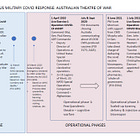
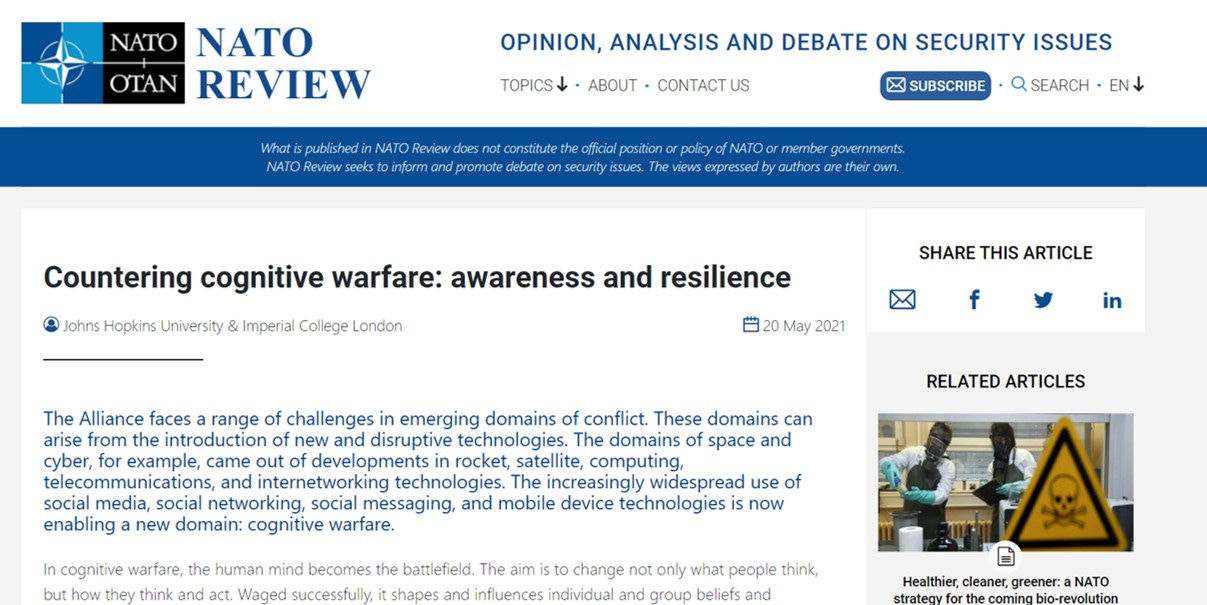





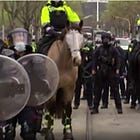
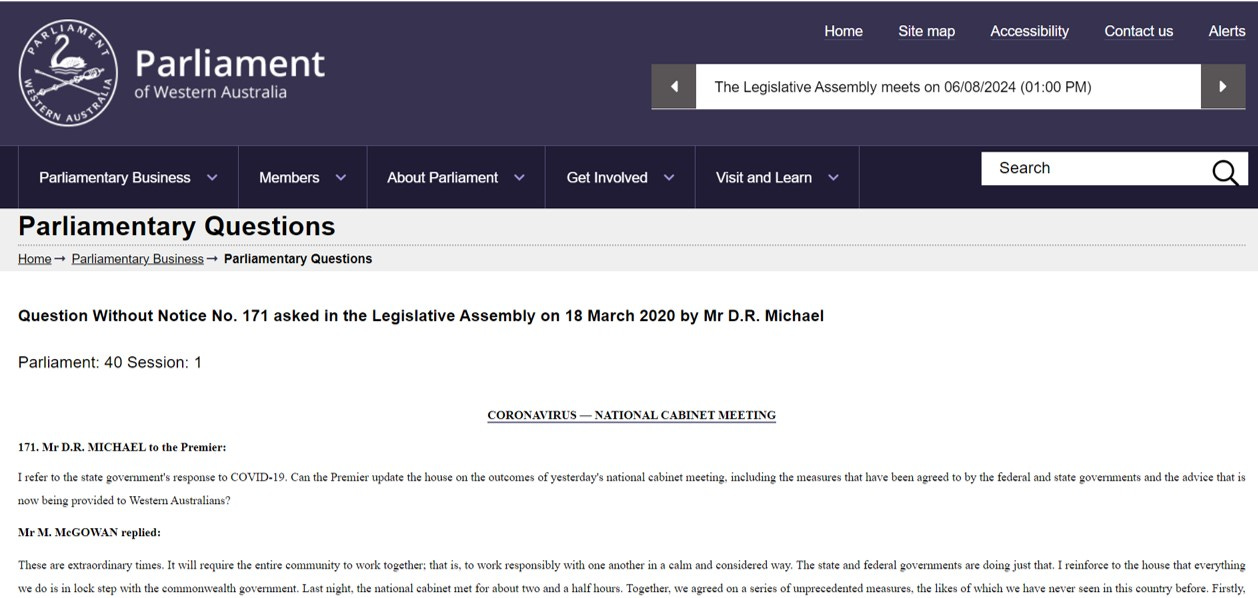

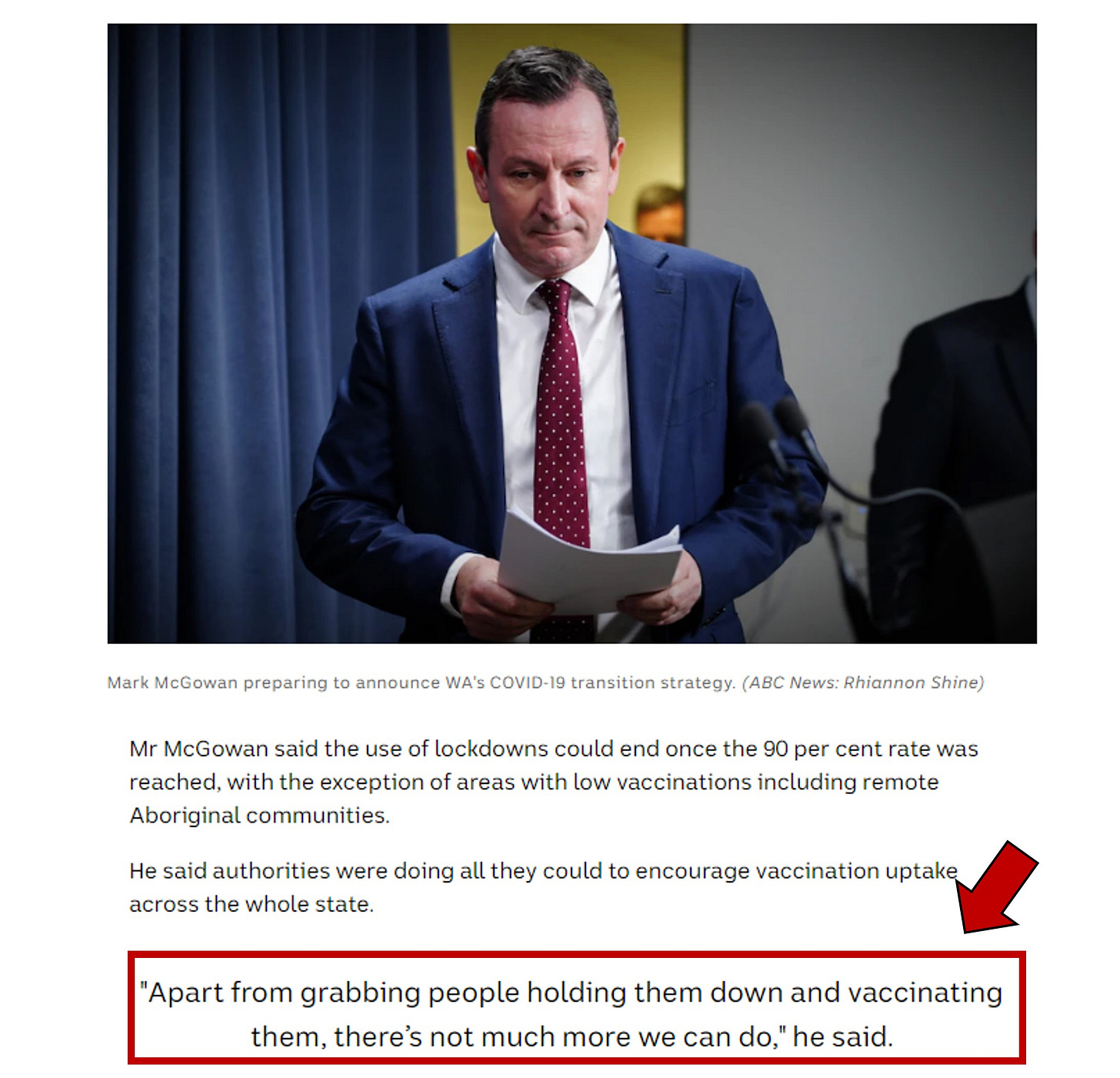
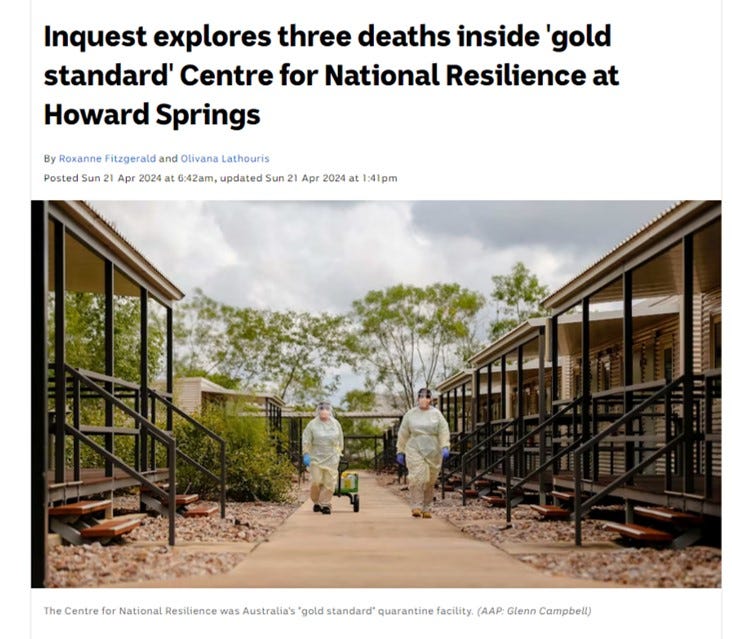

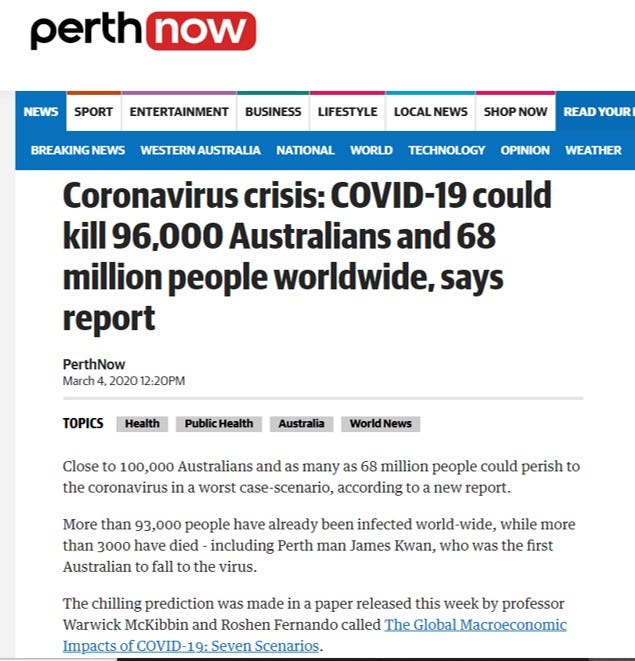


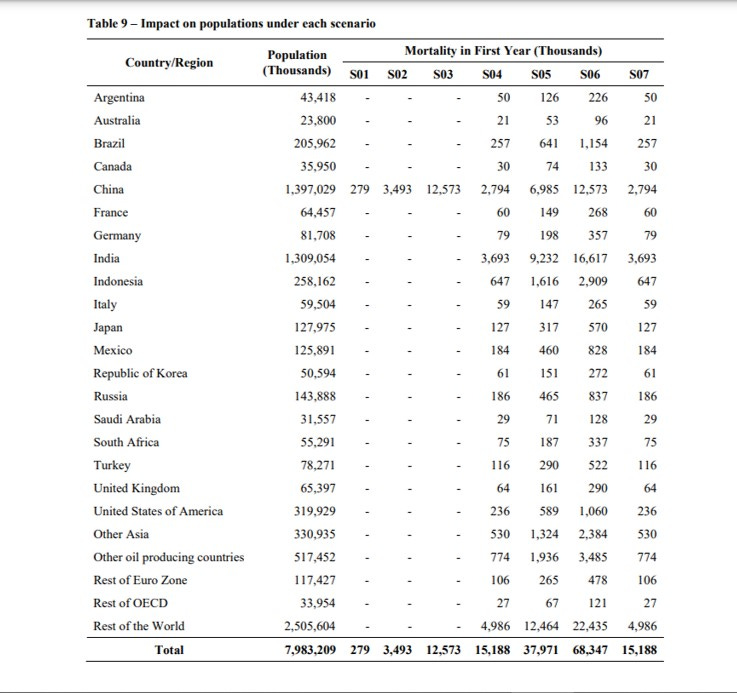





🙏 a light start to Sunday 😊 hope you are in a good space
Morning to your gov.au followers
A ton to get through but what i've drafted in response so far is ridiculous in size and I don't want to be so heavy when I should be writing this into it's own article. Bless!
1. I've read through your section on Cognitive Warfare and you're playing mah jam. I like to see efforts made at putting such terminology into a space existing in between Australian Gestalt and Aussie slang/vernacular.
A difficult task to do I think. Thinking that's because I'm not sure space is existing in between these things here; perhaps not yet, and perhaps not at all in the Australian context.
What do I mean? What is an example of such an *in-between* space?
Fence-sitting? Does that serve as an example of an in-between space?
Yes, Fence-Sitting is a well understood and commonly used term in the Australian vernacular. We know what a Fence-Sitter is and what kind of behavioural context precludes labeling someone as a Fence Sitter. It wasn't a label to wear with pride like a badge, or to display to others as a sign of loyalty. It was used disparagingly when heard during bouts of banter, so it wasn't much of an identity. And the prevailing perception of fence sitters was that they would prefer to choose no choice upon grounds of merit or morals or conviction, but rather on grounds of not recognizing identity as something made by choices. Or recognizing that formative aspects of identity for many others in the same Gestalt as you, are relying upon what choices they make to aid (or dictate) how they define themselves (and others).
Bearing this in mind, try explaining what a Fence Sitter is in our latest domain of conflict, the Cognitive Domain. I struggle at even attempting an angle on how I can approach what one would assume to be a simple task.. such is the degradation of my own cognitive faculties; dysfunctionality of my once tightly honed grasp of language and communication.
> "In order to navigate the cognitive warfare landscape, we can go to their plans which hide in plain sight."
A good starting point but the effects of combatants entering into unfamiliar domains of battle will be devastating. Cognitive Security is required teaching I think - a mandated and compulsory education for a range of dissimilar targets inside any group or population. Tailor-made engagement through deployment of bespoke Cognitive Security Solutions are recommended. Deploy at full throttle, strong in the confidence of the diverse needs from all selected target/s being met.
Our ability to customize every single aspect of every single target for every single maneuver made on this weird, ephemeral domain of Cognitive Warfare is what I believe will dictate the potential range of outcomes from customizable actions.
> "Our cognitive abilities may also be weakened by social media and smart devices."
Apropos of the above statement's author (NATO), is it's date of publication (2021). Both of which work against the formation of an accurate Cognitive Warfare & Cognitive Security ontology, or set of working definitions.
Our? No
May? No
Abilities? No
> "Cognitive ability IS weakened by social media and smart devices."
Rephrasing an opposing forces communication and language is a wonderful way to secure yourself from their attack, and potentially gain a tactical counterattacking advantage. If a counterattack is successful, then a strategic advantage is achieved through using far less resources more effectively than what the opposing force/originating force used initially.